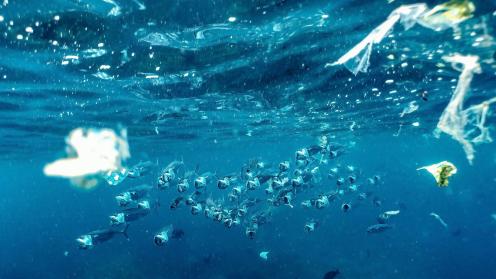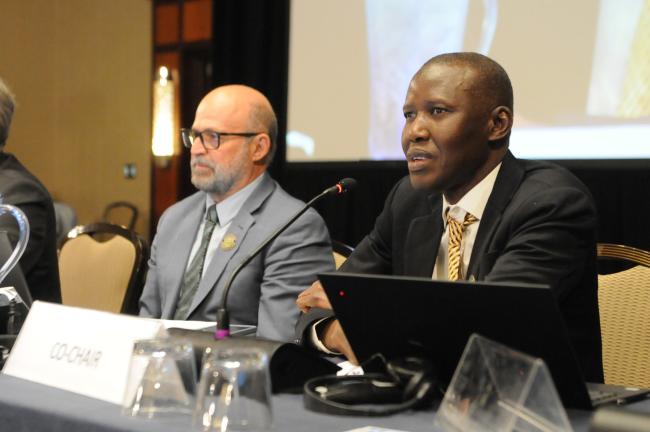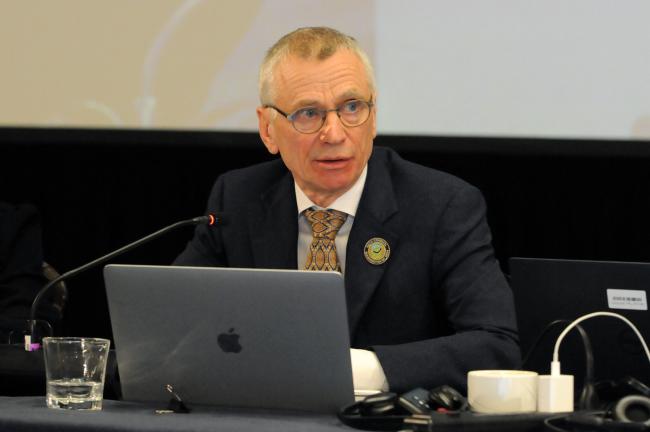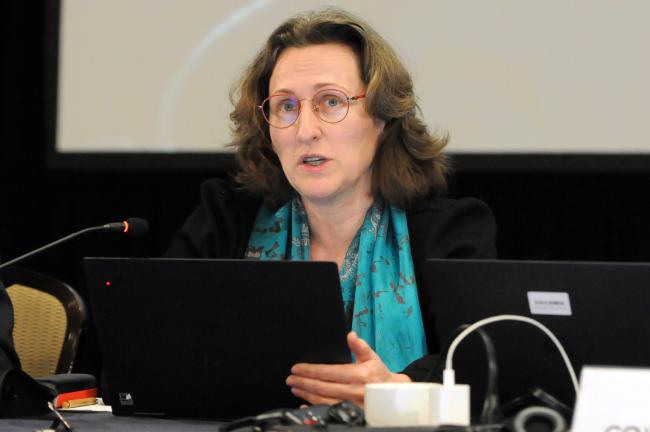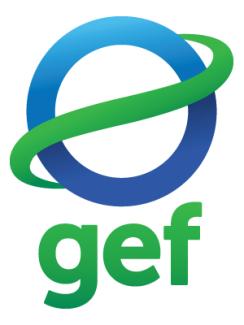On Wednesday, the Global Environment Facility (GEF) Council adopted decisions on: initial guidelines for enabling activities and support for the International Legally Binding Instrument on the Conservation and Sustainable Use of Marine Biological Diversity of Areas Beyond National Jurisdiction (“BBNJ Agreement”); streamlining the GEF project cycle; GEF funded activity and engagement in fragility, conflict, and violence-affected states (FCS); and GEF policies and key social inclusion issues. The Council also decided on the dates for the 69th and 70th Council meetings, updated its rules of procedure, received the report of the Chair of the GEF Scientific and Technical Advisory Panel (STAP), and reports from the heads of the multilateral environmental agreements (MEAs) that GEF serves.
On the BBNJ Agreement, the Council approved the initial guidelines for the funding of ratification support and implementation readiness activities for the Agreement, and asked the Secretariat to implement the guidelines. Under the guidelines, the GEF will provide up to USD 175,000 per country for national support, where countries can choose between some options for the type of support they need. The GEF will also allocate up to USD 5 million for global and regional support efforts.
Regarding streamlining the GEF project cycle, the Council adopted a decision which:
- increases the cap for Medium-Sized Projects from USD 2 million to USD 5 million;
- requires Mid-term Reviews of all projects over USD 2 million; and
- requests the Secretariat and an ad hoc working group of interested Council Members to elaborate additional measures, in consultation with GEF Agencies, GEF Focal Points, and others as appropriate, for consideration by the Council at its 67th and 68th meetings.
On FCS and social inclusion, the Council took note of the Secretariat’s gap analyses and requested the Secretariat to proceed with its proposed actions.
In her report, STAP Chair Rosina Bierbaum reviewed recent scientific findings relevant to GEF work and outlined recent STAP activities and reports, with particular focus on the recommendations for GEF from its reports on agrivoltaics; blended finance; alternative livelihoods; environmental security; citizen science; and ecosystem-based approaches. She also highlighted STAP’s future work reviewing “emerging signals and trends” and their relevance for the GEF in terms of societal changes; economic and financial shifts; and science and technological advances.
MEA presentations included:
- the UN Framework Convention on Climate Change (UNFCCC);
- the UN Legal Counsel (as temporary secretariat of the BBNJ Agreement);
- the Convention on Biological Diversity (CBD);
- the UN Convention to Combat Desertification (UNCCD);
- the Stockholm Convention; and
- the Minamata Convention on Mercury.
UNFCC Executive Secretary Simon Stiell announced that COP 29 will be “a finance COP” focusing on increasing mobilization and reforming the multilateral finance architecture. UN Legal Counsel Miguel de Serpa Soares stressed the importance of GEF support for enabling activities and swift ratifications. CBD Acting Executive Secretary David Cooper urged for more and substantial pledges to the Global Biodiversity Framework Fund before CBD COP 16. Basel, Rotterdam, and Stockholm (BRS) Conventions Executive Secretary Rolph Payet highlighted future work on sustainable financing and phaseout of polychlorinated biphenyls (PCBs) and on the linkages and co-benefits between tackling climate change and pollution. Minamata Convention Executive Secretary Monika Stankiewicz noted GEF integrated programs have not yet served her convention, and expressed hope they will do so in future work programs. UNCCD Deputy Executive Secretary Andrea Meza Murillo outlined outcomes of the recent Committee for the Review of the Implementation of the Convention (CRIC) session, emphasizing country reports on the land degradation neutrality goal and a worrying increase in degraded land.
To receive free coverage of global environmental events delivered to your inbox, subscribe to the ENB Update newsletter.
All ENB photos are free to use with attribution. For the 66th Meeting of the GEF Council, please use: Photo by IISD/ENB | Diego Noguera
